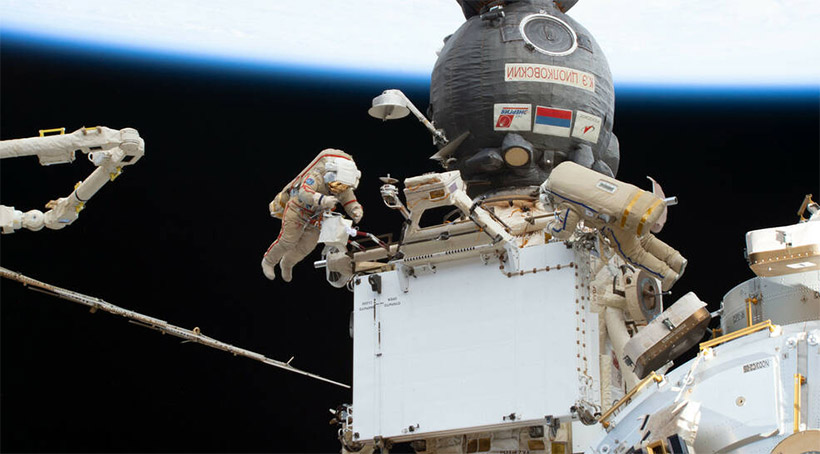
Two cosmonauts from the Russian Space Agency took part in a space walk to fit the russian module of Space station, called Rassvet module, with the debri Shields. The cosmonaut Sergey Prokopyev and Dmitri Petelin were the two cosmonauts who performed the task of debri shiends on Rassvet Module of International Space Station (ISS).
Space debri is a huge problem for space satellites as well as ISS. Even small objects, few millimeter in size can be deadly for equipment/surface of space station as well as satellites. As they are traveling on speeds of thousands of miles per second. So in this situation colliding with tiny objects is even deadly.
ISS also keeps making several maneuvers during every year, in order to dodge an oncoming object. An object which is bigger than a certain size threshold, based on tracking information which NASA collects about small and big objects which could potentially collide with ISS or satellites etc.
Dodging is one thing, but installing protection shields is also important, as, sometimes some objects may not be detected on time and may endup colliding with any module of ISS. So it is better to have a second level of defence. Also these defences help fighting the real tiny debri, which otherwise cannot be tracked or is not thought to be that deadly, but still does some damage.
Russian Space Agency, which is called Roscosmos, have a permanent presence at the ISS, since the very beginning. At all the times, at least few Russian cosmonauts remain present at ISS. Recently, the US and other astronauts have started relying on SpaceX’s resully and crewed missions. For the longest time after retiring of American Space Shuttle Program, russia provided the facilities to americans an others to send the astronauts back and forth from ISS. Even resupply missions were also sent via Roscosmos.
An upcoming NASA SpaceX crew-7 space mission also include a Russian Cosmonaut named Konstantin Borisov. This crew-7 mission is getting ready to take off in the end of August 2023. Previous NASA Space Crew-6 mission (Expedition 68) also included Russian Cosmonaut, Andrey Fedyaev.